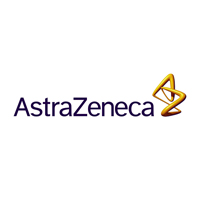AstraZeneca (LON:AZN) announced that the US Food and Drug Administration has approved Farxiga (dapagliflozin) to reduce the risk of hospitalisation for heart failure (hHF) in adults with type-2 diabetes and established cardiovascular disease or multiple cardiovascular risk factors.
The approval is based on results from the landmark DECLARE-TIMI 58 CV outcomes trial (CVOT), the largest sodium-glucose cotransporter 2 (SGLT2) inhibitor CVOT conducted to date to evaluate T2D patients with multiple CV risk factors or established CV disease.
Ruud Dobber, Executive Vice President, BioPharmaceuticals Business Unit, said: “Farxiga is the first SGLT2 inhibitor approved in the US to reduce the risk of hospitalisation for heart failure in type-2 diabetes patients with established cardiovascular disease or multiple cardiovascular risk factors. This is promising news for the 30 million people living with type-2 diabetes in the US, as heart failure is one of the earliest cardiovascular complications for them, before heart attack or stroke. Farxiga now offers the opportunity for physicians to act sooner and reduce the risk of hospitalisation for heart failure.”
Dr. Stephen Wiviott of Brigham and Women’s Hospital and Harvard Medical School, Boston, US and a Senior Investigator with the TIMI study group and co-principal investigator of the trial, said: “DECLARE-TIMI 58 is a landmark trial, offering compelling evidence that dapagliflozin can reduce the risk of heart failure in patients living with type-2 diabetes with multiple risk factors for or established cardiovascular disease. These data could help change the way we approach diabetes management – going beyond a singular focus on glucose control to help address the risk of heart failure in a diverse population of patients.”
Today’s US FDA approval follows the update to the marketing authorisation in the EU in August 2019. Farxiga is also under regulatory review in China with a decision anticipated in the first half of 2020.
The US FDA has granted Fast Track designation for Farxiga to reduce the risk of CV death, or the worsening of heart failure in adults with heart failure with reduced ejection fraction (HFrEF) or preserved ejection fraction (HFpEF) based on the Phase III DAPA-HF and DELIVER trials, and Fast Track designation to delay the progression of renal failure and prevent CV and renal death in patients with chronic kidney disease (CKD) based on the Phase III DAPA-CKD trial.
About Farxiga
Farxiga is a first-in-class, oral once-daily SGLT2 inhibitor indicated as both monotherapy and as part of combination therapy to improve glycaemic control, with the additional benefits of weight loss and blood pressure reduction, as an adjunct to diet and exercise in adults with T2D. Farxiga has a robust programme of clinical trials that includes more than 35 completed and ongoing Phase IIb/III trials in more than 35,000 patients, as well as more than 2.5 million patient-years’ experience.
About DECLARE-TIMI 58
DECLARE (Dapagliflozin Effect on Cardiovascular Events)-TIMI 58 is the largest CV outcomes trial conducted for a selective inhibitor of SGLT2 to date in a broad patient population. It is an AstraZeneca-sponsored, Phase III, randomised, double-blind, placebo-controlled, multicentre trial designed to evaluate the effect of Farxiga compared with placebo on CV outcomes in adults with T2D at risk of CV events, including patients with multiple CV risk factors or established CV disease and also assessed key renal secondary endpoints. The trial included more than 17,000 patients across 882 sites in 33 countries and was independently run in collaboration with academic investigators from the TIMI study group (Boston, US) and the Hadassah Hebrew University Medical Center (Jerusalem, Israel).
DECLARE-TIMI 58 showed that Farxiga significantly reduced the risk of the primary composite endpoint of hHF or CV death versus placebo by 17% (4.9% vs. 5.8%; HR 0.83 [95% CI 0.73-0.95], p=0.005). This finding was driven by a significant 27% reduction in the risk of hHF (2.5% vs. 3.3%; HR 0.73 [95% CI 0.61, 0.88]). The treatment benefit was consistent across patient subgroups. The Phase III DECLARE-TIMI 58 trial confirmed the well-established safety profile of Farxiga.
The full results of the DECLARE-TIMI 58 trial were published in The New England Journal of Medicine in January 2019.
About AstraZeneca in Cardiovascular, Renal and Metabolism
Cardiovascular, Renal and Metabolism (CVRM) together forms one of AstraZeneca’s three therapy areas and is a key growth driver for the Company. By following the science to understand more clearly the underlying links between the heart, kidneys and pancreas, AstraZeneca is investing in a portfolio of medicines to protect organs and improve outcomes by slowing disease progression, reducing risks and tackling comorbidities. The Company’s ambition is to modify or halt the natural course of CVRM diseases and potentially regenerate organs and restore function, by continuing to deliver transformative science that improves treatment practices and cardiovascular health for millions of patients worldwide.
About AstraZeneca
AstraZeneca is a global, science-led biopharmaceutical company that focuses on the discovery, development and commercialisation of prescription medicines, primarily for the treatment of diseases in three therapy areas – Oncology, Cardiovascular, Renal and Metabolism (CVRM), and Respiratory. AstraZeneca operates in over 100 countries and its innovative medicines are used by millions of patients worldwide. For more information, please visit astrazeneca.com and follow us on Twitter @AstraZeneca.








































